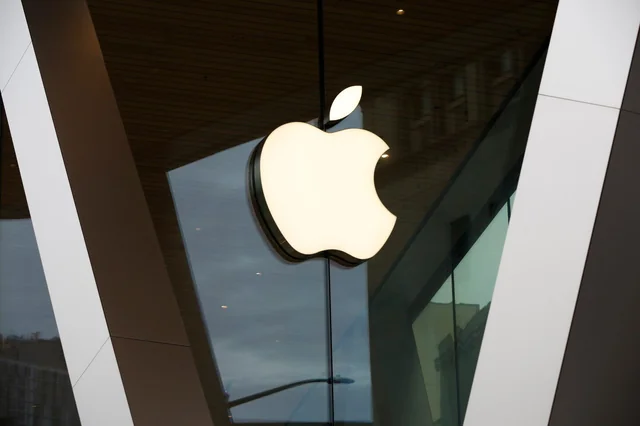Apple AI, OpenAI partnership, ChatGPT integration, Apple WWDC 2024, generative AI, AI features, Apple Intelligence, Siri upgrades, Tim Cook, AI privacy, AI regulation, AI competition
Apple announces a major partnership with OpenAI to integrate ChatGPT into its products, alongside unveiling new AI features at WWDC 2024. Explore how Apple aims to compete with Google and Microsoft in the AI space while maintaining its focus on user privacy.

San Francisco – Apple has officially entered the artificial intelligence (AI) arms race, announcing a groundbreaking deal with OpenAI, the creators of ChatGPT. This collaboration aims to integrate OpenAI’s cutting-edge technology into Apple’s suite of products, marking a significant step for the tech giant as it seeks to compete with AI advancements from rivals like Google and Microsoft.
Major Announcements at Worldwide Developers Conference
The announcements were made during Apple’s annual Worldwide Developers Conference (WWDC) in Cupertino, California. Apple unveiled a host of new AI features designed to enhance its products and keep pace with the rapidly evolving AI capabilities touted by competitors. Alongside Apple’s proprietary AI technologies, the inclusion of ChatGPT in iPhones, iPads, and Macs later this year represents a major endorsement of OpenAI’s innovative tech.
A Shift in Strategy
Traditionally, Apple has differentiated itself by maintaining a closed ecosystem that prioritizes user privacy and integrates hardware and software seamlessly. However, the burgeoning influence and capabilities of generative AI have proven too significant to ignore. Apple’s CEO, Tim Cook, described the new AI features as “game changers” that will become “indispensable” components of Apple’s products.
New AI Features: Apple Intelligence
Apple introduced several AI features collectively branded as “Apple Intelligence.” These include a text generator for composing emails and SMS messages, an image-generating tool for use across various Apple apps, and an upgraded Siri with enhanced capabilities. The integration of these AI tools aims to offer a more personalized and efficient user experience by leveraging Apple’s comprehensive software ecosystem. For instance, users can ask their iPhones to “play the podcast my mom texted me,” and the system will accurately interpret the request by accessing relevant Apple apps.
Competition and Regulatory Concerns
Craig Federighi, Apple’s Senior Vice President of Software Engineering, emphasized that Apple’s AI tools are superior because they are deeply integrated into Apple’s ecosystem. This integration allows for more contextual and personalized responses compared to standalone AI tools offered by competitors. However, the partnership with OpenAI may attract scrutiny from regulators, especially given Apple’s ongoing antitrust battles.
The Justice Department has previously challenged Apple’s business practices, alleging an illegal smartphone monopoly. Additionally, the Federal Trade Commission (FTC) has been keen on scrutinizing major tech partnerships to ensure they do not stifle competition or innovation. Apple’s substantial deal with Google, which positions Google’s search engine as the default in Safari, has already been a focal point in antitrust discussions.
Future Partnerships and AI Models
Federighi hinted at the possibility of Apple forging additional AI partnerships in the future, including potential collaborations with Google. This strategic openness could allow users to choose from various AI models, thereby enhancing Apple’s AI offerings. “We look forward to doing integrations with models like Google Gemini, for instance, in the future,” Federighi said, suggesting a flexible approach to incorporating different AI technologies.
The Rise of Generative AI
OpenAI’s release of ChatGPT in November 2022 sparked a frenzy in the tech industry, prompting major investments and integrations from companies like Microsoft and Google. Microsoft’s substantial investment in OpenAI led to the incorporation of AI technologies into a wide range of Microsoft products. Google quickly followed suit, enhancing its search capabilities and launching chatbots like Bard and Gemini.
Despite the initial hesitance, Apple’s CEO, Tim Cook, acknowledged the transformative potential of generative AI during a May 2023 investor call. Cook emphasized the need for a cautious and thoughtful deployment of AI technologies, highlighting ongoing concerns about safety and reliability.
Challenges and Concerns
The rapid pace of generative AI development has raised significant concerns about safety, reliability, and ethical implications. Issues such as chatbots generating false information or perpetuating biases remain unresolved. Liran Hason, CEO of Aporia, stressed the importance of implementing robust safeguards in AI technologies to prevent unintended consequences. “The accelerated pace at which generative AI products are being released raises significant concerns for both the business and the users in terms of safety and reliability,” Hason said.
Privacy and Security Measures
In line with its commitment to user privacy, Apple announced that most AI features would be processed on-device. More complex AI functions will be handled in Apple’s specialized data centers, utilizing the company’s proprietary chips. When leveraging ChatGPT’s capabilities, users will be notified before their queries are sent to OpenAI. OpenAI assured that requests would not be stored, and users’ IP addresses would be obscured to protect privacy.
Apple’s Longstanding AI Endeavors
While Apple’s recent AI announcements are significant, the company has been utilizing AI technology for years. Features such as image recognition in iPhone photo libraries, crash detection in Apple Watches, and Siri’s natural language processing have all been built on AI foundations. However, recent breakthroughs in AI, particularly in large language models developed by companies like Google, have set new standards in the field.
Conclusion
Apple’s partnership with OpenAI and the introduction of new AI features signal a major shift in the company’s approach to artificial intelligence. By integrating ChatGPT and enhancing its own AI capabilities, Apple aims to offer a more personalized, efficient, and secure user experience. As the AI arms race intensifies, Apple’s strategic moves will be closely watched by industry analysts, competitors, and regulators alike.
The coming months will reveal how effectively Apple can leverage these new technologies to maintain its competitive edge while addressing the ethical and regulatory challenges that accompany the rapid advancement of AI.
Read More